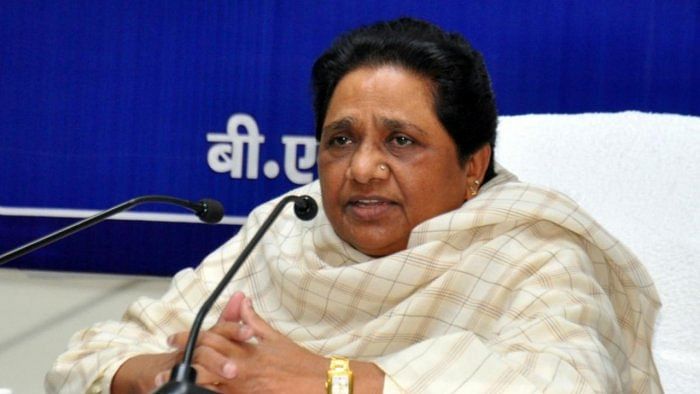
When Samajwadi Party (SP) chief Akhilesh Yadav held his first rally in western Uttar Pradesh, he made it a point to drop in at the residence of Harinder Malik in Muzaffarnagar. The former MP and Jat leader had quit Congress to join the SP, and Yadav's visit was seen as part of the messaging to non-Muslim intermediate caste groups in a polarised polity.
Two months later, Malik's son and former MLA, Pankaj Malik, was named the joint candidate of the SP-Rashtriya Lok Dal (RLD) alliance from Charthawal, a rural constituency in Muzaffarnagar's cane belt. It has both Muslims and Jats in large numbers, and the two communities together form a robust electoral combination.
But the very next day, Bahujan Samaj Party (BSP) chief Mayawati queered the pitch by naming Salman Sayeed as her party's nominee from Charthawal. Sayeed is the son of former state home minister in UP's last Congress government (1985-89), veteran Congress leader, Saiduzzaman. The father and son face charges for giving incendiary speeches during the 2013 Muzaffarnagar riots.
Not just Charthawal, the BSP, in its first list of 53 candidates, has fielded 14 Muslims, including four in the communally sensitive Muzaffarnagar. In comparison, the SP-RLD alliance has rooted for 11 Muslim candidates in the 40-odd seats of the region for which it has finalised its nominees. The BSP strategy for western UP is an attempt to recreate its traditional Jatav-Muslim combination.
The space has become more cluttered on seats where the SP-RLD alliance and the BSP have fielded Muslim candidates. Aligarh, for one, is being billed as an exciting contest where the BSP has fielded a woman candidate, Razia Khan. She is up against the SP's Zafar Alam. Then there is Asaduddin Owaisi-led All India Majlis-e-Ittahadul Musalmeen (AIMIM). Owaisi has announced his party's intent to field candidates on a hundred seats.
Three Muslim candidates compete in constituencies like Dhaulana in the Hapur district, an hour's drive from Delhi. The SP has given the ticket to Aslam Chaudhary, who won the seat on the BSP ticket in 2017 by a margin of fewer than four thousand votes. The BSP has fielded Wasid Pradhan from Dhaulana. Owaisi's party, too, has given its ticket to a Muslim candidate, Haji Arif.
The electoral logic of the SP-RLD alliance in western UP hinges on the SP's ability not just to mop up minority votes for itself but to limit division of anti-BJP votes and ensure the transfer of Muslim and backward castes votes to ally RLD's candidates. For the SP, this task becomes challenging in constituencies where the BSP has fielded Muslim candidates.
Take the case of both Charthawal and Budhana in the Muzaffarnagar district. Hoping to capitalise on the farmers' agitation in the sugarcane belt, the SP-RLD alliance has fielded Jat candidates on both seats. The BSP has given tickets to Muslims while the BJP has nominated one OBC and one Jat candidate.
A more complex situation prevails in Kol in Aligarh, where the BSP and the SP have fielded Muslim candidates. Here the RLD's ability to add Jat votes to the alliance kitty will be tested. The call for support for alliance candidates by the Bhartiya Kisan Union and the Tikaits of Sisauli could have helped the RLD's prospects. But the statement was withdrawn, perhaps after a realisation that such calls may engender counter mobilisation in a polity where vote preferences can be influenced by khap or clan affiliations, especially against the dominant communities.
The demography of western UP suits the BJP. Registering its best strike rate of almost 87 per cent in the region, the party got off to a blazing start in the 2017 Assembly polls. The ruling party is again relying on the consolidation of backward classes and traditional upper caste voters. And on the division of the anti-BJP votes too. Hence, 46 of the 109 tickets announced in its first two lists of candidates have gone to the OBCs.
As the election moves east, the SP will be buffeted by its core constituency among the Yadavs and OBCs. In western UP, though, its chances would depend on what the RLD brings to the table.
(Sumit Pande is a journalist)
Disclaimer: The views expressed above are the author's own. They do not necessarily reflect the views of DH.